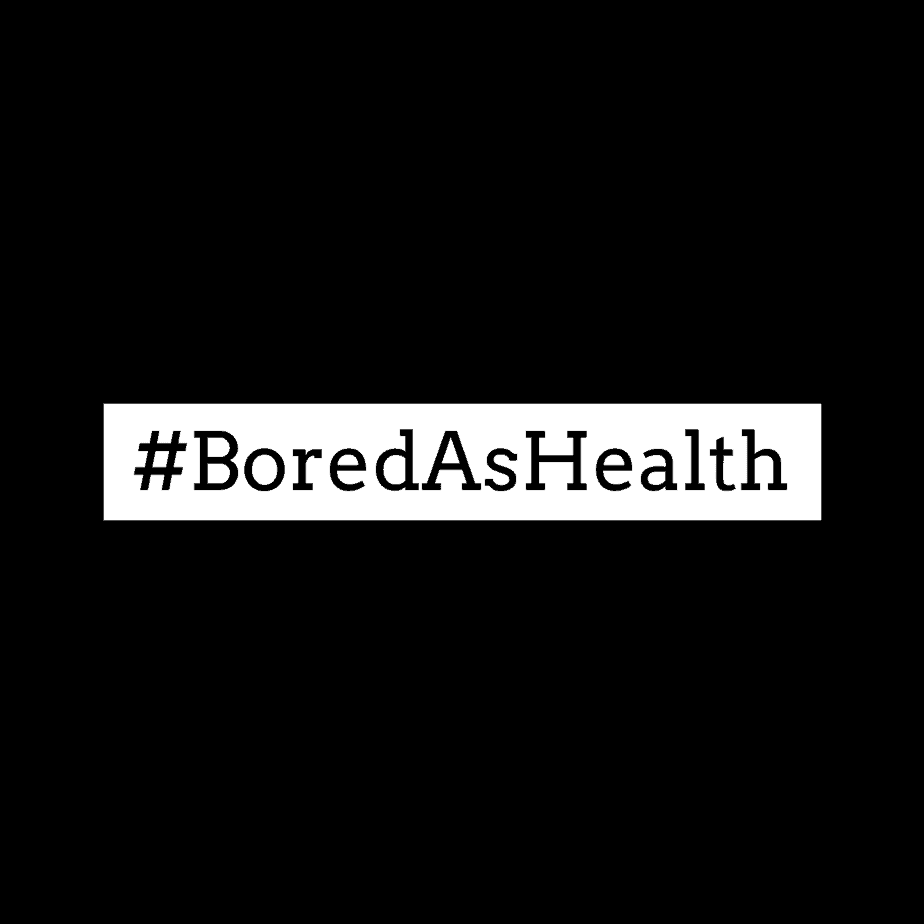You shouldn’t feel badly for being selective in what you care about. Instead, there is a more reasonable and sustainable alternative for us all. I will explain what it is and how to implement it in order to make your corner of the world a better place.

Care Shaming
Years ago, I read a Tweet from a friend about a terribly sad issue affecting a large group of women in a particular part of the globe at the time. I don’t clearly remember the specifics, but I do remember that it was important, and it certainly deserved time, attention, and resources.
What I also remember very clearly is that, after stating the problem, my friend rhetorically asked the question, “How is everyone not outraged by this?!”
Fair question, but my immediate response was, “Because we’re not capable of it.” Think about this objectively. We cannot possibly care equally about everything that comes to our attention. Practically, logistically, psychologically and biologically.
- Practically and Logistically – It would be impossible to take meaningful action or invest ourselves beyond a few fleeting moments to any particular cause simply because there are too many that deserve someone’s attention. Every moment spent on one cause would be at the expense of every other.
- Psychologically – Taking our evolving nature of adaptability into consideration, trying to care about everything equally would result in being desensitized to the suffering on this planet, which I would venture to say that we already experience. It’s the Parkinson’s Law of empathy.
- Biologically – Our sympathetic nervous system, much like it does to many people experiencing chronic stress, would not allow our minds and bodies to return to the much needed state of rest (essential for recovery, immune system health, etc.). We would quite literally be paralyzed with concern at all times, and that helps no one.
Here’s the thing though: Caring about the suffering in this world is a beautiful and wonderful quality in human beings. However, if it is not managed through a framework of emotional intelligence and understanding, this can – and often does – quickly devolve into a tribalistic, virtue signaling, war of values and perspectives. Essentially, many well-intentioned people are becoming vultures of virtue. There are other outcomes where people become resentful of those they support, or they feel depleted and disappointed because no one can live up to their impossible standards of selflessness. We all know someone like that, and we would do well to have an honest conversation with them about how their giving nature is impossible to match.
Here is a key question to ask ourselves: Is there a better way to take steps towards making our world a better place without spreading ourselves so thin that we are ineffective and/or volatile towards the very individuals we aim to care for?
This article is meant to show you how to be consistent in our selectiveness of the priorities we take on as well as our actions towards them.

Sign up for my free Newsletter!
get access to:
Information On Habit Change & Consistency
Accountability * Support * Community
E-Books * Articles * Instructional Videos
Inspiration * Motivation * Methodologies
Free Swag & More!
What Your Brain CAN Do
Our brains, magnificent and mysterious as they may be, are only evolved to process and manage a tiny fraction of the stimuli we come in contact with on a daily basis. If you have ever walked through Times Square of New York City on an average day, you will likely have encountered more people in a matter of five minutes than most people in history have during the totality of their lives. Think about that for a second.
Of course, we can’t be expected to interact with every, or even most of those people, so what do we do? We set our senses on the environment surrounding us, taking in the splendor of lights, sounds, smells, and energy that comes from such a robust setting. Furthermore, we, almost by necessity, suppress the humanity of each soul walking past us because, if we took their existence as seriously as we took our own, or even those in our close circle, we would literally pass out from mental overload.
What I’m saying is, it’s not only difficult to care about each creature of this world, it’s impossible to do so with equal importance. How many causes are worthy of our time and energy? Animal cruelty, human trafficking, hunger, governmental abuse, veganism, environmental waste, heart disease and cancer, and more. Each of these, and more, can be broken down into subcategories that deserve their own attention:
Animal Cruelty
- Domestic animals
- Dogs
- Specific breeds
- Cats
- Birds
- Reptiles
- Dogs
- Endangered Species
- Tigers
- Rhinos
- Sharks
- Dolphins
- Wolves
- Monkeys
Human Trafficking
- Sex trafficking
- Modern Slavery
- Geographically:
- Within your city and state
- Within your country
- Internationally
Hunger
- Domestically
- Nationally
- Globally
- Within school systems
- Across various political and governmental structures
- Food quality as well as availability
Governmental Abuse
- Misuse of funds
- Nepotism
- Corruption within unions
- Political abuse
- Impeachment
- Term limits
- Legal system
Veganism and Vegetarianism
- Standard vs. Raw Veganism
- Waste of the meat industry
- Cage free vs. caged
- Is Dairy OK?
- Emergence of unhealthy “Meatless” foods
Environmental Waste
- Recycling
- Plastic industry
- Political agendas
- Climate change
- Proponents
- Deniers
Heart Disease and Cancer
- Obesity crisis
- Food deserts
- Cancer
- Breast
- Testicular
- Lung
- Etc.
- War on sugar
- Corruption within the weight loss industry
Kim Kardashian
There are people who devote 12+ hours per day, 7 days per week to defending the wrongfully accused in our judicial system. Even Kim Kardashian is pursuing a law degree and using her platform to fight for those who have been given long or even lifelong sentences for non-violent drug-related crimes. Let’s quickly apply an extremely optimistic assumption that, after all of her hard work, she miraculously gets 10,000 people out of jail during the course of her lifetime. That would be a world-changing outcome. But what about the rest of the people? What about those still being treated unjustly? What about the other causes that deserve just as much attention?
Fun Fact: Kim Kardashian’s daily routine is intense. She does not drink, goes to bed around 8:00-9:00pm, and wakes up for a workout around 5:45am. In a nutshell, she works her famous butt off.
Combating Cocaine
The issue of drug trafficking is almost comically difficult to solve.
Although Columbia’s legal economy is growing each year, it still remains that a large percentage of its citizens are dependent for their income on the illegal farming, production, distribution, and sale of cocaine. It is estimated that 90% of the cocaine that enters into the United States comes from Columbia.
The United States recently spent billions of dollars in a single year to combat cocaine from entering into the country. And all for what? The amount of cocaine that was smuggled in doubled from the previous year. DOUBLED. Our government tried to use a ridiculous amount of money and manpower to override the basic human incentive to survive, and it lost.
Sewage Water Saves Lives
Or look at Bill and Melinda Gates, two of the richest and most intelligent people on the planet. Years ago, they teamed up with billionaire investor and businessman Warren Buffet, widely known as the Oracle of Omaha, to tackle one main problem at a time. They started with global water, sanitation, and hygiene issues because, in many third world countries there are shortages of clean and safe sewage treatment facilities in villages.
This individual problem generated three downstream problems:
- Mothers had a shortage of safe places to nurse their children or relieve themselves, leaving them vulnerable to sexual assault, which, sadly, often runs rampant in settings like this, especially in communities where the rights of women are suppressed.
- Villagers relieve themselves in one area, and the waste would find its way downstream or downhill into the often scarce drinking and bathing water that the community shared.
- Children were becoming ill and/or dying by the tens of thousands after being exposed to the bacteria-infested waters.
Once the main problem was clearly identified, unspeakable amounts of dollars, hours, resources, meetings, prototypes, etc. were allocated towards this one issue. With the help of some of the world’s most brilliant minds and most innovative engineering firms, they successfully installed a paradigm-shifting sewage and water filtration system called the Janicki Omniprocessor that somehow takes in human waste, filters it, and converts it to drinkable water. It was truly an amazing invention.
To those of us living in the 1st world, we might think “No thanks”, but if you’ve been living in an environment where your children are dying because you have no other option but to drink the same water that your waste flows into, you’re going to take what you can get. But here’s the thing: The foundation not only turned feces into drinkable water, it also built safe facilities for the mothers and children to visit without fear of being harmed.
This is a single issue that took billionaires and geniuses years of devotion and unspeakable amounts of money to create a working solution that is still not finished or fully distributed across the globe. Is it amazing and wonderful? Absolutely. Could they have done this if they tried tackling even one or two other issues – let alone all of the other major concerns listed above? Absolutely not.
A jack of all trades is a master of none. Bill and Melinda Gates, though they wanted to change everything, had to choose something if they were going to make a difference in anything.
Have I made my point? We can’t care about everything equally.
So what do we do?
Selfish on Purpose
I openly admit that, in many aspects of my life, I’m incredibly selfish. While I give my time and effort towards making the lives of my clients, friends, families, and readers better, the altruistic qualities about me do not come naturally. No, I’m not a sociopath. I’m just introverted, very particular, and I learned a long time ago that no one is going to rescue me from my own problems (which are many, and take up much of my time). While I’m working on the less charming qualities of that selfishness (like sharing my food with my girlfriend), I don’t apologize for the general posture I take of looking out for myself and that which I find important.
I get really weird looks from people when I’m honest about what I choose to care about and what I choose not to care about. Do I care about people? Of course. Do I care about every person equally? Of course not. As mentioned earlier in this article, my brain literally could not handle it, so I stopped pretending like I am supposed to. Let me tell you, that was like an awakening.
Selfishness, in this sense, is more appropriately referred to as selectiveness. You have to make decisions about what your mind, body, and soul pursues. If you don’t, the ambiguous world of outrage, headlines, and shallow opinions will do it for you.
It is time to make a choice.
Choose YOUR THING and Give It All You’ve Got
“To do two things at once is to do neither.” – Publilius Syrus
Most people know, at least generally, how to solve their own problems. When I survey my readers with the question: “What is stopping you from doing the thing you say you want to do?” the two most frequent themes are:
- I don’t have time
- I don’t have motivation/energy
Welp…time doesn’t regenerate. What you have is what you get. And motivation/energy can be generated, but it takes work on the front end.
May I propose something that actually works? Something that…magically recaptures lost time and energy?
Recapture Lost Time and Energy
Cal Newport writes in his incredible book Deep Work about how we are spread so thin by fleeting thoughts, concerns, tasks, etc. which he refers to as “shallow work”, that we lose out on the opportunities to participate in regular bouts of “deep work” where we are focused, intentional, and in a state of flow and productivity that is unmatchable during any other time.
Many of these “shallow” things are necessary for life (i.e. responding to emails, running errands, catching up with coworkers, etc.), but we often make the mistake of trying to complete “deep work” activities (i.e. working through a complicated problem, writing a report, doing in-depth research) at the same time, rendering both of them ineffective and inefficient.
Newport cites the work of a journalist Daniel Coyle who shows in his book The Talent Code that our brains actually thrive on deep work, bringing us far more joy and purpose than in shallow work. The problem is that, in a world of endless notifications, we’ve begun to rapidly rewire our neural circuitry to mainly be aroused by distracted shallow work which has led to an intolerance for focus, productivity, and the like.
But fear not, there is a hero that can save us all, and that hero’s name is Myelin. According to Coyle:
“…scientists increasingly believe the answer [to increased focus and productivity] includes myelin—a layer of fatty tissue that grows around neurons, acting like an insulator that allows the cells to fire faster and cleaner. To understand the role of myelin in improvement, keep in mind that skills, be they intellectual or physical, eventually reduce down to brain circuits. This new science of performance argues that you get better at a skill as you develop more myelin around the relevant neurons, allowing the corresponding circuit to fire more effortlessly and effectively. To be great at something is to be well myelinated…This repetitive use of a specific circuit triggers cells called oligodendrocytes to begin wrapping layers of myelin around the neurons in the circuits—effectively cementing the skill. The reason, therefore, why it’s important to focus intensely on the task at hand while avoiding distraction is because this is the only way to isolate the relevant neural circuit enough to trigger useful myelination. By contrast, if you’re trying to learn a complex new skill (say, SQL database management) in a state of low concentration (perhaps you also have your Facebook feed open), you’re firing too many circuits simultaneously and haphazardly to isolate the group of neurons you actually want to strengthen.”
You don’t have to be a biology major to realize this single truth – our minds and bodies (and perhaps our spirits) thrive on focused activities. Beyond the craving itself, the slew of benefits from retraining the brain to operate within the framework of being present within the single time, space, and activity we are currently in speaks volumes as to what we can accomplish…better yet, how we can live on a regular basis.
As James Clear illustrates in his book Atomic Habits, our happiness and fulfillment cannot be sustained in setting and achieving individual goals. Instead, we ought to establish systems of continuous improvement which align with our interests and health pursuits. Goals have an end date. Systems do not. Goals spark us. Systems continue operating.
Perhaps it is worth considering that the best thing we can do to build a long-term plan for success and happiness is to focus on developing habits around systems of deep work which align best with our goals.
This creates a lifestyle, not a trend. A sustained habit, not a fleeting desire. An opportunity to make a difference in something rather than little to no difference in anything.
A Challenge for You
Here are 3 simple steps to identify what you want to pursue and how to get after it effectively.
1. What Do You Want? AND Who You Want to Be?
For just a moment, set aside the anxiety of getting from where you are now to where you want to be. Envision what your life looks like as a person who not only achieved a pursuant goal, but maintains such daily pursuits as a part of your routine. Granted, if your goal is to lose weight, you’ll eventually reach a point where you no longer need to consume fewer calories than you burn. You’ll be in maintenance mode (much more enjoyable, of course). But what does that look like? What does that version of yourself do every day? How do you feel? What decisions do you make? Which principles do you live by?
Really envision this for a moment and ask yourself: Do I truly want this? If you’re afraid, that is normal. If you don’t actually care, that’s OK. Be willing to admit that, and move on (with the exception of things that threaten the well-being of yourself or others, i.e. Physical or mental health, being unable to pay the bills, etc. If your apathy is hurting people, you’ve given up the right not to care).
An example might be:
- Goal: I want to lose 20 lbs and 4% body fat in 6 months. Afterwards, I’d like to make continuous, small tweaks to my physique and health as I maintain my weight loss.
- Future State: I am in control of my fitness and diet. I look and feel healthy, and I am someone who cares deeply about my quality of life. I make good choices with regard to what I eat, the activities I do, and being a positive influence to those around me.
Do you see how the goal (short-term) supports the future state (long-term)? The goal is the outcome that, once reached, cannot generate new behaviors. After all, it is finished. The future state, however, is a state of being that sustains you as a specific type of person who thinks and acts in specific ways. Simply put, it’s no longer about what you try to do. It is about who you are.
With this example in mind, let’s move onto step 2.
2. Identify SUSTAINABLE Actions to Support It
Remember: For anything you want to accomplish, there are four main steps:
- Know what you truly want (Not what you think you should want)
- Make the time (It’s there, I promise)
- Build a plan (That works for you)
- Stay the course (Trust the system you built)
Let’s apply these steps to the examples above:
- Want:
- “I want to lose 20 lbs and 4% body fat in 6 months, then I want to maintain it”
- “I want to become the type of person who (insert future state)…”
- Time:
- “I will complete 4, 30-minute workouts per week during my lunch hours”
- “My exercise routines will be sacred. No one is allowed to take that time away from me”
- “If, for any reason, I am unable to complete my workout, I will make up for it within the same week”
- Plan:
- “I will put together a sustainable and simple plan that increases my chances at long-term success”
- What promotes weight loss?
- Caloric Deficit
- Exercise
- Consistency
- Log food intake every day
- Weigh myself every morning
- Choose an exercise program that I enjoy and fits in my schedule
- YouTube videos
- Hire a trainer
- Download a workout program (I highly recommend planning your workouts out weeks in advance)
- What promotes weight loss?
- “I will put together a sustainable and simple plan that increases my chances at long-term success”
- Stay the Course:
- “I will establish an ecosystem that holds me accountable”
- Join a Facebook Group that supports members in their weight loss journey
- Listen to podcasts or audiobooks on the subject
- Read books that help educate me
- Establish rewards along the way
- “I will establish an ecosystem that holds me accountable”
For you, these four steps may look different. Perhaps you’re not prepared to workout 4 days per week. Maybe your schedule only allows 20-minutes per day. Maybe you prefer weights over cardio. Maybe working out before or after work makes more sense for you. These things are all important to ponder, but the key takeaway is taking a small investment of time upfront to plan a system that makes sense for your life, your desires, your situation. Now is the time to put a round peg in a round hole rather than trying to force someone else’s values, schedule and system into your life.
REMEMBER: What works for you? Now, we are ready to move onto the final step.
3. Go!
Does this need any more explanation? You are far more likely to see something through if you put in the time upfront to know what you truly want, find time for it, build a plan that works for you, and stay the course. And just as importantly, SAY NO to things that are outside of your control, outside of your purview of importance, and oppose the beneficial system you’ve created for yourself.
This matters. Now go forth, and be the person you just described.
Let’s Bring it Home
If this article upsets you, and you feel like you should be able to care and take action on a bunch of different things at once, that’s fine. You are free to do so. My concern for you (strictly from an application standpoint) is that you may have begun to stake your identity in caring more about being upset than doing something about it, let alone being effective.
People high on the empathy scale are hugely important to our society, but that extreme and unfocused empathy can be detrimental to progress if it is not reigned in and used towards some things more specific. By all means, make the world a better place, but to paraphrase my friend Dan Munro (Author, Podcast Host, Integrity coach, and owner of Brojo.org), maybe it’s more effective to focus on your little corner of the world than to try and tackle the whole thing.
Consistency in anything depends on how much you care as well as how much you can handle.
80% effectiveness for 20 years is likely a whole lot better than 100% effectiveness for 20 weeks. Putting too much on your plate is often a recipe for failure. Look honestly at your own history, and ask yourself:
- Have I cycled up and down?
- Do I tend to go all-or-nothing?
- Do I rely too much on bouts of inspiration and motivation, only to come crashing down when I lose that high?
Is there any better reason to focus your efforts than to try and make your corner of the world a better place?
When all else fails, ask yourself “What do I want to achieve here? To appear that I care about an outcome, or the outcome itself? To do something great for a while or to be someone great for a lifetime?”
The choice is yours.
Be Well,
Teddy









